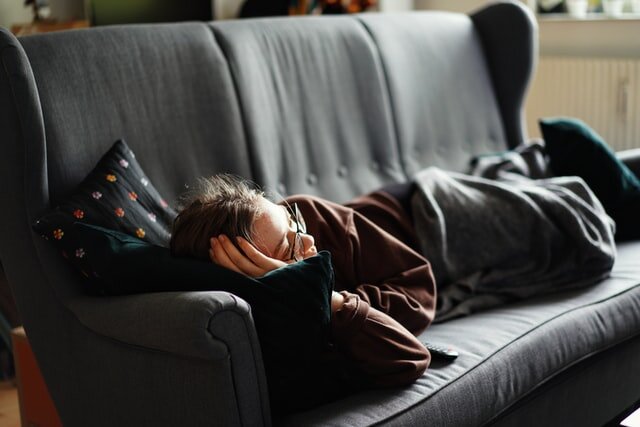5 Physical Symptoms of Grief That Zap Your Energy
If you’ve ever experienced deep grief, or are going through it right now, you’re probably familiar with how exhausted it can make you feel. Your body is tired and your brain is fuzzy. Conquering the dirty dishes, making the bed, and even getting dressed can feel like too much. Even though you haven’t sustained physical injuries, you may feel like you have. Muscles and joints ache; you’d rather sit still than try to move and function.
It’s important to know that these feelings aren’t just in your head. Grief really does produce physical symptoms that leave you exhausted. Understanding these symptoms is important so you know what’s happening to yourself and how you can manage them.
1.Trouble Sleeping
Going through any loss demands a great deal of emotional energy. You’re plunged into a different world. You have to adjust your life in many ways. Your brain is overloaded by the shock of dealing with these changes.
As a result, many people experiencing grief often struggle with sleep issues. Sleeping more than usual is common. After all, sleep offers relief from your emotional pain. When you’re asleep, you don’t have to feel the pain (although it may come through in your dreams). You don’t want to get up, because there may be comfort in the warmth and shelter of your bed.
On the flip side, you may struggle with insomnia instead, or in addition to sleeping too much.
When your natural sleep cycle is interrupted, through too much or too little sleep, your body isn’t able to maintain
2. Anxiety or Worry
Feelings of anxiety or worry are common after a loss. You may worry about how you will cope without your loved one, whether they have passed away or been lost through divorce. The immensity of life without them can weigh you down. You worry about how you’ll manage the tasks they took care of. Loneliness is a constant concern.
Anxiety takes a toll on your body because it causes your body to remain in a state of high alert. This means that your stress hormones keep your muscles tight and heartrate and breathing higher in an effort to keep you ready to respond to threats—even if those threats are not physical.
As a result, anxiety leaves you wiped out because your body can’t get the rest it needs.
3.Lowered Immune Function
Emotional stress, including grief, is known to reduce the body’s immune functioning. When your immune system is weaker, you’re more likely to feel run down. You may be more likely to catch viruses than you were before, such as colds. They leave you even more tired.
4.Overwhelming Emotions
Grief often includes the experience of overwhelming emotions. You may feel fine but suddenly start weeping, for example. The rollercoaster of emotions wears on you. If you’ve ever sobbed uncontrollably, you know how tired it can make you feel.
5.Eating Too Little or Too Much
A complete loss of appetite is common for those going through grief. Nothing is appealing; you can barely choke anything down. As a result, your body lacks the energy it needs to get you through the day and you feel tired.
Some people take comfort in overeating during grief, of course. Comfort foods are not known for being particularly nutritious. The added carbs, fat, and sugar can also take a toll on your body and leave you more tired.
How to Cope
A large part of coping with grief and the physical exhaustion it causes begins with understanding the grief cycle. It’s normal to go through ups and downs during grief, and it’s normal to be tired and overwhelmed.
Remember to give yourself patience and love. Reach out to friends and family to ask for help with household tasks or errands that just feel like too much. Take supplements to help make up for some of the nutritional loss you’re experiencing. Purchase healthy, pre-made meals to make eating simple and less stressful.
Therapy is also an important option to consider when you’re grieving. At our office, we can help you process your loss and work through the stages of grief. If your grief begins to turn into a deep depression, we’re able to identify it and help you find healing. Please visit my Grief and Loss Counseling page and reach out today.

